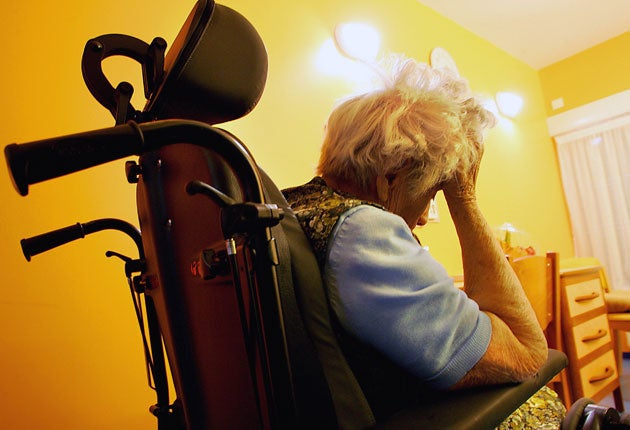Plan at last to tackle 'liquid cosh' dementia drugs

Twelve years after the Royal College of Physicans warned about the practice of “switching the patients out with the lights” in old people’s homes, and a decade since the Alzheimer’s Society first demanded an end to the use of the “liquid cosh”, the Government yesterday announced an action plan to tackle over-prescribing of anti-psychotic drugs to elderly people.
Ministers’ belated response to the problem was highlighted by an independent review, published yesterday, which estimated 180,000 people with dementia are currently receiving powerful cocktails of sedative drugs of whom over three quarters - 144,000 - are being prescribed them inappropriately. The drugs are estimated to cause 1,800 deaths and 1,620 strokes a year but despite warnings about the risks prescribing has continued.
The findings of the review, commissioned by the Department of Health in June 2008 in response to pressure from charities for the elderly, echo those of the RCP’s report more than a decade ago which warned too many care home residents with dementia were spending their final months and years in a state of suspended consciousness occupying a half-world, waiting for death to come.
Doctors have warned for years about the overuse of antipsychotic drugs - normally prescribed for schizophrenia - to keep challenging residents of old people's homes quiet and easy to manage. Some refer to it as a “chemical ball and chain”. Why spend time and energy keeping an eye out for an Alzheimer's sufferer who is prone to wander when you can effectively lock him in his chair with high doses of risperidone or haloperidol?
There are an estimated 700,000 people in Britain with dementia, most with Alzheimer’s disease, of whom more than half suffer symptoms of agitation, aggression, wandering , shouting and other difficult behaviours. Antipsychotic drugs are recommended by the National Institute for Clinical Excellence for short term use in severe cases to curb distressing symptoms. But in almost 80 per cent of cases in which they are prescribed, they are given long term or inappropriately and “cause more harm than good”, Professor Bannerjee said.
The Care Services minister, Phil Hope, accepting the 11 recommendations in the review including local targets to reduce prescribing of antipsychotics by two thirds over three years, said: “It is unacceptable that antipsychotic drugs are routinely prescribed to people with dementia.”
However, Mr Hope, announced no new funding to back the recommendations, which include better training in dementia for health and social care staff, improved access to psychological therapies for patients and more specialist dementia teams.
Professor Bannerjee said the cost of his proposals, estimated at £450,000 for each primary care trust, equivalent to £68 million for England, would have to come from existing resources. “There is a need for PCTs to commission extra capacity to provide specialist dementia teams,” he said.
Neil Hunt, chief executive of the Alzheimer’s Society, hailed publication of the review as a “landmark”. But he added that there was a “resourcing question”.
Mr Hope said he had visited a home where use of the drugs had been reduced by 62 per cent after managers organised specialist dementia training for the staff, including simple steps to reduce agitation in affected individuals.
He said: “Substantial resources are being spent on dementia care. This is about making sure that the money spent is spent to the best effect. I have visited care homes where it is being done. If it can be done in one home it can be done in every home.”
Paul Burstow, a Liberal Democrat MP who has been campaigning on the issue for years, said the measures were long overdue.
“This review comes much too late for thousands of elderly people whose lives have been cut short by the reckless prescribing of anti-psychotic drugs.”
Subscribe to Independent Premium to bookmark this article
Want to bookmark your favourite articles and stories to read or reference later? Start your Independent Premium subscription today.

Join our commenting forum
Join thought-provoking conversations, follow other Independent readers and see their replies